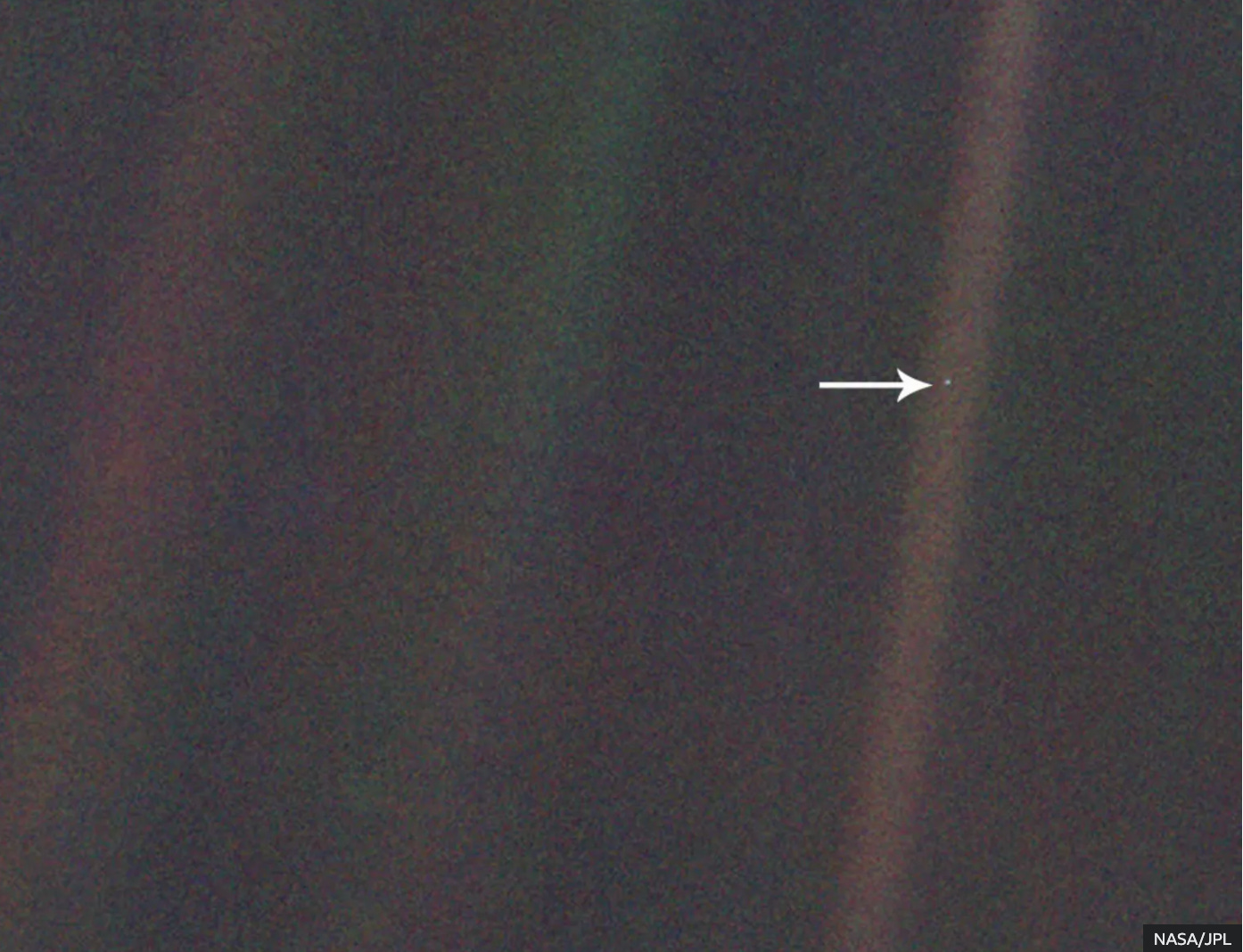3.7 billion miles of freedom
"The aggregate of our joy and suffering ... on a mote of dust suspended in a sun beam."
On February 14, 1990, NASA's Voyager 1 snapped a photo.
Within that photo? Everything.
The focus of the image is a tiny speck about the size of a pixel. It’s Earth, seen from 3.7 billion miles away.
Today, that planetary pinpoint photo is known as the "Pale Blue Dot."
The Pale Blue Dot is us — humanity, earth, our collective consciousness. In that single pixel lies the past, present, and future, insignificant in the cosmos — tiny dots on an endless timeline.
The image helps people gain perspective. Our struggles, fears, and concerns — our joys, sorrows, and accomplishments — all collected on the Pale Blue Dot, nothing more than a blip on a radar of incomprehensible scale.
The Pale Blue Dot helps some people take risks.
Minimize disappointment.
Move on.
But it’s never done that for me.
The scale is too big. The universe is so massive that it loses meaning.
For me, perspective needs to be more localized.
A couple of years ago, I read Karl Ove Knausgaard's autobiography series.
Knausgaard, a Norwegian author, transports you into his life — into decades of living, growing and failing. Sometimes, he shares his highest highs and his lowest lows. But many of the 3,600 pages or so discuss the mundane moments of his life.
In one scene, Knausgaard is at a 5-year-old’s birthday party. It's Bergen, Norway in 1995. A moment only worth remarking on because of how unremarkable it is. Billions of people have had the exact same experience.
But if Knausgaard hadn't written about that birthday party, I never would've known it existed.
And for me, that localized the Pale Blue Dot.
What if everyone wrote their own autobiography? Picture that library. Billions of volumes sharing every experience of everyone to ever live.
A writer in Norway, 1995, but also a trader on the Silk Road in 1311. A farmer in Japan, 1566. A shoe salesman in Des Moines, 1923.
You, Anywhere in the World, 2024.
Billions of people doing trillions of things having quadrillions of thoughts. And nearly every last one eventually vanishing.
That scale hits me closer to home. It's the most effective illustration I’ve experienced to highlight our relative insignificance in the grand scale of life.
Most people don't write autobiographies. Their experiences are never written down, never printed, never published.
People failed, people stagnated, people triumphed. But we'll never know about those experiences.
All the moments that mean everything to one person never exist for 99.9% of the world.
This isn't about nihilism. We write our own mental chapters every day. When we complete those autobiographies, we want to be able to look back and read about how we were kind, how we were patient, how we were compassionate. Those things matter. What you do matters.
But just as they have for billions of people before us, our earthly lives will eventually be dusted over by time and space. Your best moments, your worst moments, and your most mundane moments will only exist in your mental autobiography, shelved next to billions of others.
So, what I'm saying is this:
Stop worrying about what other people think.
Pursue what makes you happiest.
Above all, be you.





We are but a split second in the life of the universe. So make the most of it.
Thanks for the reminder to live life.